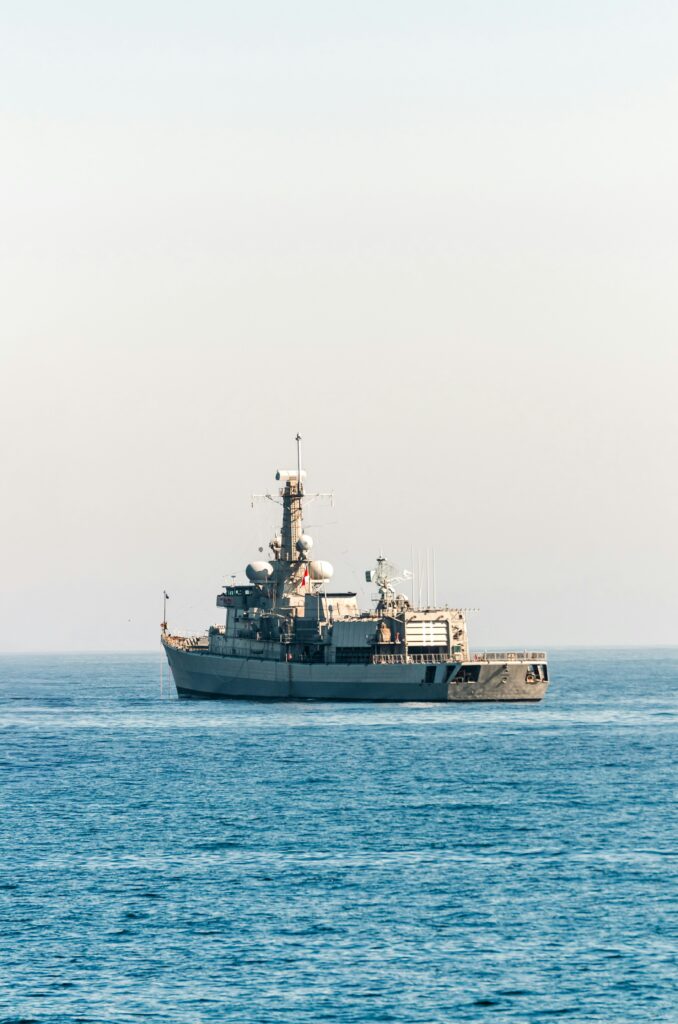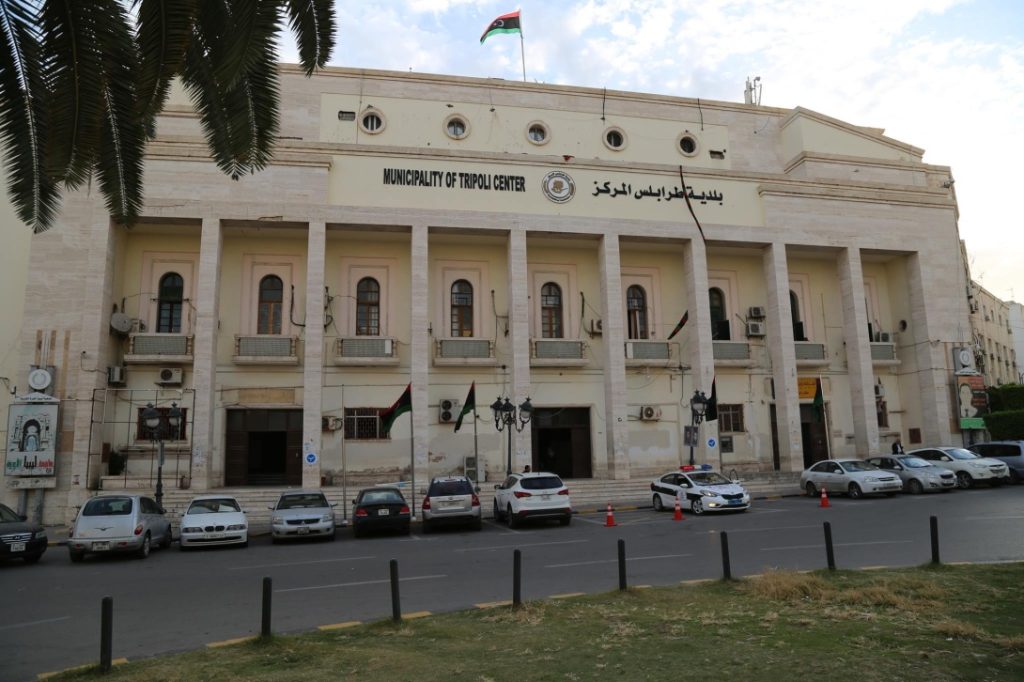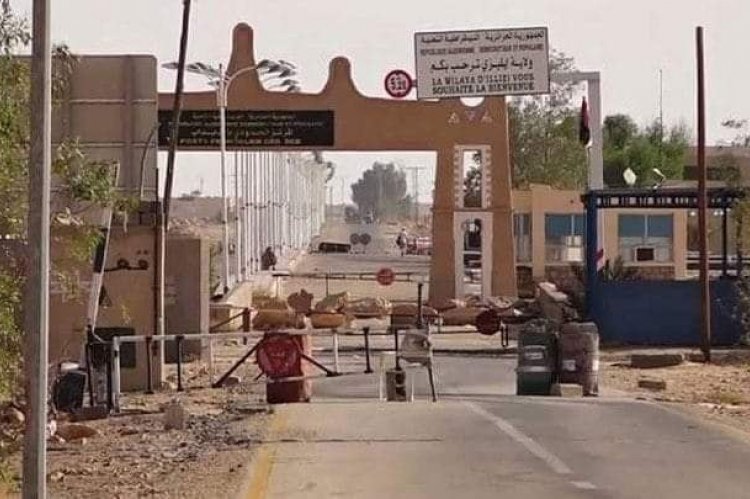Libya’s Security Pivot
Libya, long characterized by political fragmentation and protracted conflict, is increasingly positioning itself through Libya military cooperation as a credible security actor in the Mediterranean and North Africa.. Following the fall of the Gaddafi regime in 2011, Libya’s internal divisions crystallized into the internationally recognized Government of National Unity (GNU) in Tripoli and the eastern-based Government of National Stability (GNS). For more than a decade, competing militias, regional interventions, and a fragile institutional framework left the country unable to provide effective governance or security.
Yet over the past two years, Libya military cooperation has become a tool of strategic engagement with regional and European partners, signaling both domestic stabilization and a growing commitment to regional security.
This pivot is evident across multiple dimensions. Joint military exercises with NATO members, air force interoperability drills with France and Germany, naval patrols in coordination with Italy, and counter-smuggling operations along Libya’s extensive Mediterranean coastline demonstrate a commitment to operational effectiveness. Beyond tactical capacity, these collaborations serve broader strategic purposes: they enhance Libya’s credibility as a responsible regional actor, create leverage in diplomatic negotiations, and reinforce its role as a partner for Europe in counterterrorism, migration management, and maritime security.
Crucially, Libya’s renewed security engagement occurs at a time when Europe faces compounded challenges: migration flows from North Africa, instability in the Sahel, and concerns about transnational terrorism. By actively participating in regional defense initiatives, Libya not only addresses immediate operational gaps but also strengthens its negotiating position in matters of foreign investment, energy security, and regional diplomacy. Moreover, these developments illustrate that even in a dual-governance system, Libya is capable of unified action when mutual security interests align, offering a blueprint for functional cooperation amid political divisions.
Libya Military Cooperation: Joint Exercises Demonstrate Regional Security Capacity
Libya’s armed forces, including the army, navy, and air force, have increasingly participated in coordinated drills with European and Mediterranean partners, highlighting operational capacity and signaling intent. Joint exercises serve as both training grounds and political statements, demonstrating that Libya can function as a reliable security partner even amid domestic fragmentation.
Recent NATO-led maritime exercises in the central Mediterranean in August 2025 provide a clear example. Libyan naval units operated alongside Italian and Maltese forces to conduct search-and-rescue simulations, anti-trafficking patrols, and maritime interdiction drills. Such exercises are critical given Libya’s geographic position at the crossroads of Mediterranean migration routes, where human trafficking networks have historically flourished. By demonstrating competence in naval coordination, Libya reassures European partners that it can actively contribute to securing Mediterranean sea lanes, an operational requirement for EU migration management and maritime trade security.
On the air front, interoperability drills with France and Germany tested rapid-response scenarios for counterterrorism operations and border security contingencies. These exercises involved integrated command-and-control simulations, aerial surveillance coordination, and crisis response training. Notably, Libyan pilots successfully engaged in real-time communication with NATO-standard aircraft, highlighting progress in technical proficiency and operational readiness.
Land exercises have further underscored Libya’s potential for unified action. In eastern Libya, GNU and GNS forces conducted combined maneuvers near Kufra and Benghazi, involving reconnaissance, simulated urban operations, and logistics coordination. Despite lingering political divisions, these exercises revealed that operational alignment is possible when both governments prioritize security objectives. Observers from regional think tanks, including IFRI and Chatham House, note that these combined drills mark a meaningful evolution from ad hoc cooperation to more structured, repeatable engagement, laying a foundation for future institutionalized security mechanisms.
These exercises also serve a signaling function. For Europe, they demonstrate Libya’s readiness to shoulder security responsibilities in its immediate region, from counter-smuggling operations to joint maritime defense. For internal stakeholders, the exercises illustrate that cooperation between GNU and GNS is feasible, offering a potential model for broader state-building initiatives. By maintaining transparency and reporting outcomes to international partners, Libya increases trust in its operational capacity and positions itself as a stabilizing actor within a historically volatile region.
Libya Military Cooperation: Anti-Smuggling Operations Reinforce Strategic Value
Military cooperation in Libya extends well beyond training exercises, encompassing real-world operations that address key European and regional security concerns. Human trafficking and arms smuggling remain persistent challenges in the central Mediterranean, and Libyan forces, often coordinating with EU border agencies, have demonstrated increasing effectiveness in mitigating these threats.
The Libyan Coast Guard, for instance, intercepted multiple smuggling vessels along the eastern Mediterranean coast, preventing hundreds of undocumented crossings and disrupting criminal networks. These operations required intelligence gathering, rapid response capabilities, and close coordination with both local and international actors. By curtailing illegal migration flows, Libya reduces the operational burden on European border control agencies, reinforcing its strategic value as a security partner.
Through Libya military cooperation frameworks, EU and Libyan authorities have enhanced information sharing and tactical coordination, improving the success rate of maritime interventions. Collaborative programs have enabled Libyan authorities to dismantle transnational arms trafficking cells operating in southern Libya. These networks, which once transported weapons across borders into conflict zones in the Sahel, now face heightened operational risk due to coordinated monitoring, digital surveillance, and real-time intelligence exchange.
Synchronized naval patrols by GNU and GNS forces off Tobruk and Misrata exemplify practical cross-administrative collaboration. While political divisions remain, operational pragmatism has prevailed: patrols are now conducted according to shared schedules, with unified communication protocols ensuring coordinated maritime surveillance. This level of coordination demonstrates Libya’s growing capacity to implement cohesive strategies, providing reassurance to European and regional partners concerned with irregular migration and maritime security.
The broader strategic impact is substantial. By effectively reducing the flow of illicit goods and people, Libya strengthens regional stability, fosters trust in its security institutions, and creates conditions conducive to investment and economic growth. European stakeholders, increasingly linking security cooperation to infrastructure and development support, view Libya’s military engagement as both a tactical and strategic asset.
Libya Military Cooperation Strengthens Diplomatic Leverage
Libya’s military cooperation yields significant diplomatic dividends. By showcasing reliability in security operations, the country gains leverage in negotiations over energy, migration, and investment. Diplomatic engagement and security credibility are increasingly intertwined, reinforcing Libya’s capacity to influence regional agendas.
Defense cooperation agreements with Italy and France now include structured training programs, intelligence-sharing protocols, and joint crisis-response frameworks. These arrangements formalize operational collaboration while providing European partners with reassurance that Libya is moving toward predictable and accountable security behavior. Participation in EU Common Security and Defence Policy (CSDP) initiatives on Libya further solidifies Libya’s position as a legitimate regional actor capable of mediating disputes, coordinating multilateral exercises, and contributing to shared security objectives.
Transparency has become a key component of Libya’s diplomatic strategy. Regular reporting to European partners on military readiness, patrol outcomes, and counter-trafficking operations demonstrates accountability and operational competence. This visibility enhances Libya’s credibility, allowing it to advocate for foreign investment in ports, infrastructure, and defense programs while simultaneously reinforcing its role in regional stability.
Enhanced security credibility also translates into broader strategic influence. Libya’s ability to coordinate effectively with external partners provides leverage in bilateral and multilateral negotiations, whether securing EU funding for infrastructure, concluding energy export agreements, or establishing trade corridors. By linking military reliability to tangible diplomatic outcomes, Libya strengthens its negotiating position across multiple domains, positioning itself as a proactive and capable Mediterranean partner.
Libya Military Cooperation and Sahel Security Contributions
Libya military cooperation extends beyond the Mediterranean, addressing threats in the Sahel that have direct implications for European security. Extremist groups such as ISIS and Al-Qaeda affiliates operate across Libya’s southern borders, exploiting governance gaps and porous frontiers to conduct transnational operations. Through joint initiatives with France, Italy, and neighboring states such as Chad and Sudan, Libya has begun countering these threats with a combination of intelligence operations, coordinated patrols, and UN-monitored arms control programs that align with international counterterrorism standards.
Joint intelligence efforts focus on identifying extremist networks, monitoring their movement, and disrupting supply chains for weapons and logistics. Ground coordination with neighboring states ensures that border regions are actively monitored, preventing militant groups from exploiting the Libya-Sahel corridor. Additionally, local Libyan units have benefited from capacity-building programs emphasizing reconnaissance, rapid response, and community-based counter-extremism, fostering both tactical competence and local legitimacy.
The impact is multi-faceted. Beyond improving security in southern Libya, these measures reinforce Libya’s standing as a partner capable of contributing to European and regional priorities. By participating in transnational counterterrorism efforts, Libya demonstrates that its strategic relevance extends beyond oil, energy, and migration, encompassing broader regional security responsibilities.
Challenges and Risks
Despite progress, Libya’s military cooperation faces persistent challenges. Political fragmentation between GNU and GNS authorities remains a fundamental constraint. While operational pragmatism has allowed joint exercises and patrols, unified command structures are still nascent. Security infrastructure gaps, including limited training facilities, outdated equipment, and uneven funding, threaten long-term effectiveness. Additionally, regional tensions, particularly with Algeria and Tunisia, could complicate multinational engagements, requiring careful diplomatic navigation.
Mitigating these risks requires sustained international engagement. Standardized training programs, technology transfers, and institutional support can enhance operational effectiveness. Moreover, establishing permanent coordination mechanisms between GNU and GNS forces ensures that joint operations are not ad hoc but embedded in Libya’s broader security architecture.
Policy Recommendations
- Institutionalize Joint Operations: Create permanent frameworks for GNU-GNS coordination across military exercises, border security, and maritime patrols to ensure continuity and effectiveness.
- Expand EU-Libya Intelligence-Sharing: Formalize secure data-sharing platforms for disrupting human trafficking, arms smuggling, and terrorist networks.
- Enhance Counterterrorism Capacity: Invest in specialized training, equipment, and technology transfer to strengthen Libya’s southern border security.
- Link Security to Investment: Use demonstrated military reliability as leverage to attract foreign investment in ports, infrastructure, and defense collaboration programs.
- Promote Transparency and Reporting: Establish clear mechanisms for reporting military readiness, patrol outcomes, and operational results to international partners, reinforcing credibility.
Building Trust Through Security
Libya’s evolving military cooperation with NATO, EU states, and regional partners underscores the country’s transition from conflict to constructive engagement. Through joint exercises, anti-smuggling operations, and counterterrorism initiatives in the Sahel, Libya is not only enhancing its operational capacity but also strengthening diplomatic leverage and regional trust. By institutionalizing Libya military cooperation, investing in capacity-building, and sustaining international engagement, Libya can solidify its role as a reliable Mediterranean partner, delivering tangible security benefits to both domestic stakeholders and the broader region.



